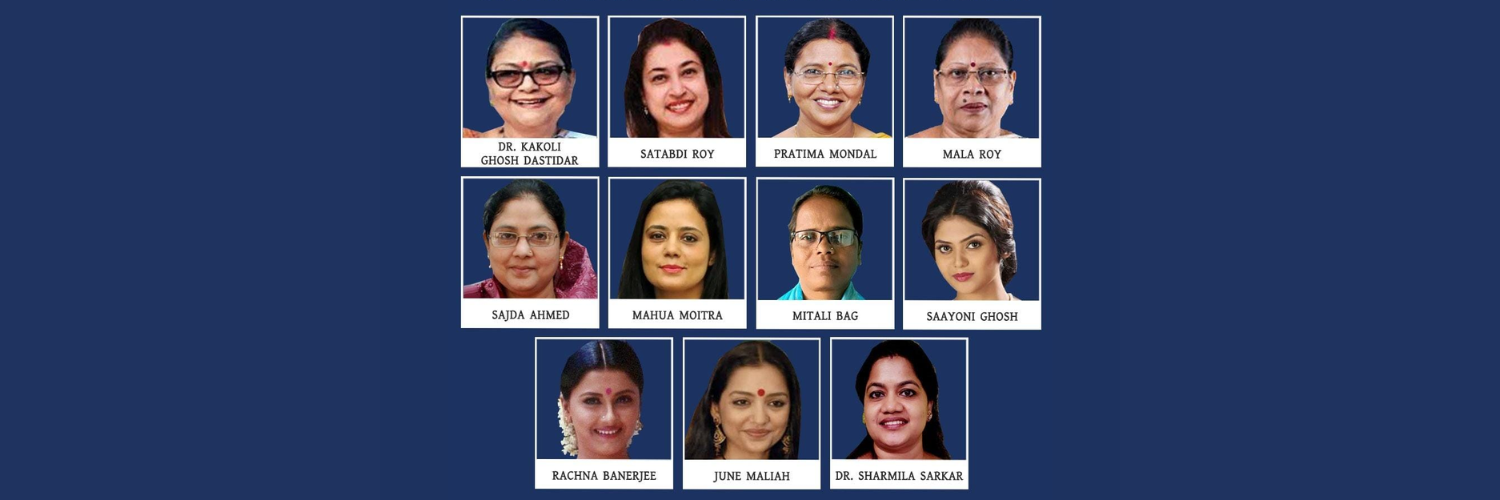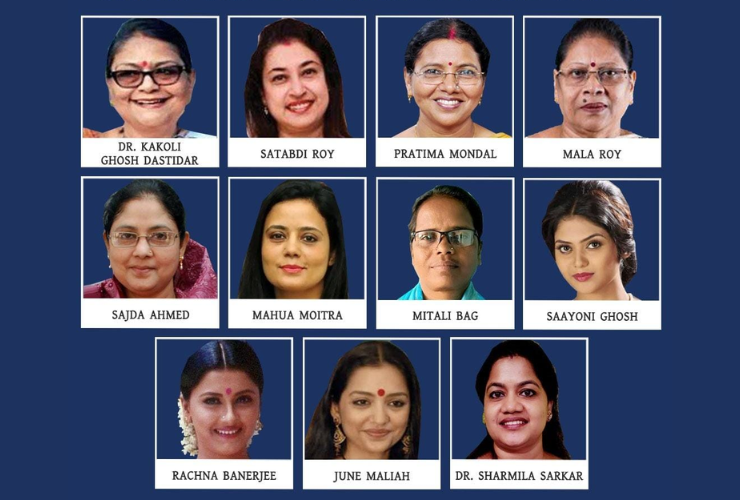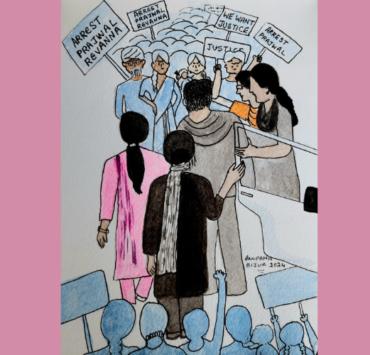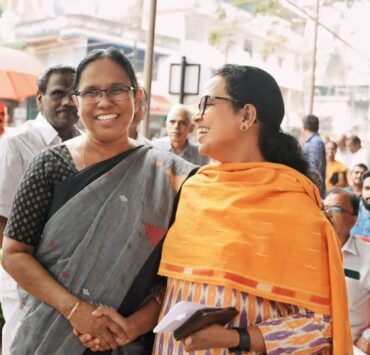
By Shikha Mukerjee

West Bengal Chief Minister Mamata Banerjee’s handpicked contingent of newly elected women Members of Parliament (MPs), inspired by her, are ready to take the fight into the enemy camp. Of course, it will be easier in the 18th Lok Sabha, in which the Narendra Modi led Bharatiya Janata Party (BJP) is a considerably reduced force, with 240 seats instead of the overpowering 303 seats it occupied in the previous Lower House of Parliament. Eleven of the 12 women nominated for the contest won the recent parliamentary elections.
The strike rate of the Trinamool Congress (TMC) in ensuring that both newbies and veterans win in what was a rough and tough electoral battle, with the BJP on the one hand, and the alliance of the Indian National Congress (INC) and the Communist Party of India Marxist (CPI-M) led Left Front on the other, is remarkable. Women constitute 37.9 per cent of the total of 29 Trinamool Congress MPs in this Lok Sabha, making it the party with the best record of women’s representation ever in the history of the House. In contrast, the 30 women from the BJP who won the elections comprise a mere 13 per cent of their total and the 13 female MPs from the Congress this time comprise 14 per cent of its total of 99.
Re-elected from Krishnanagar, Mohua Moitra’s return will be sweet revenge for her, representing the fulfilment of a vow she made when she was expelled from the House in December 2023, following allegations of “cash-for-questions” and other such unethical conduct, which were said to have compromised the security of Parliament and, by extension, the nation. As a second term MP, Moitra is expected to outdo her performance in her maiden term, when she took on the Modi regime by calling it fascist, plunged in on the Pegasus snooping scandal and topped her innings by launching an attack on the crony capitalist connections of the Prime Minister.
Sayoni Ghosh, actor, Youth Trinamool Congress leader and MP from Jadavpur, has an axe to grind. She was the target of scurrilous attacks by the BJP during the 2021 campaign for elections to the state’s Legislative Assembly. She has been threatened by the BJP with physical violence in the past. The TMC has sent a team of other successful professionals to the Lok Sabha this time – including three other actors: newbies Rachana Banerjee and June Maliah, as well as veteran Shatabdi Roy.
All 11 of the party’s women MPs are women of substance. There are two doctors, Kakoli Ghosh Dasatidar and Sharmila Sarkar; career politicians Mala Roy and Sajda Ahmed; a career bureaucrat turned politician, Pratima Mondal; and one newbie MP, an Anganwadi worker, Mitali Bag. Like Mamata Banerjee, most of the Trinamool Congress MPs do not belong to the political aristocracy, with family connections to give them an easy ride in the rough and tumble of intensely competitive politics, both inside parties and against rivals. Banerjee herself rose through the ranks of the Congress party until she was singled out by the then Prime Minister Rajiv Gandhi and made general secretary of the All India Youth Congress in 1984, after she became one of the youngest MPs to be elected to the Lok Sabha.
While women made up 28.57 per cent (nearly one third) of the total number of candidates fielded by the TMC in the 2024 elections, the party’s newly elected female MPs now make up 37.9 per cent of the total. That is the closest any party has got to the actual proportion of women in India’s population: 48.41 per cent. The Trinamool Congress has been consistent in its commitment to increasing the participation of women in public life through the large number of MPs it has sent to the 17th and now the 18th Lok Sabha. In fact, in 2019 the party fielded women candidates in 17 of Bengal’s total of 42 Lok Sabha seats (about 40 per cent of the total number of candidates); during the 2014 Lok Sabha polls, the TMC’s figure on this score was 28 per cent.
This mirrors the party’s practice at the state level of giving women status and responsibility – even though the percentage of women in the current Assembly is only 14 per cent. It also fits into its larger commitment to the empowerment of women by enabling them to function autonomously and with agency, which is most evident in its direct cash transfer scheme, Lakshmir Bhandar.
The BJP had hoisted a woman, Rekha Patra, onto a pedestal and named her Shakti Swaroop for leading the protests in Sandeshkhali, a segment of the Basirhat Lok Sabha constituency, against Trinamool Congress leader Shahjahan Sheikh who, along with his henchmen, are accused of sexual exploitation of women and land grab. The party’s failure to ensure her victory in the recently concluded elections can be seen as a betrayal of its assurances to women that their dignity and safety were a priority for the party.
The fact that Patra lost in the Sandeshkhali segment makes her position in the area even more vulnerable and the BJP needs to take responsibility for her future. Her loss also makes the lives of the women who openly joined her in the protests equally vulnerable. It does not matter how Amrita Roy or Locket Chatterjee or Debasree Chaudhuri – BJP’s candidates for the Krishnanagar, Hooghly and Kolkata South seats in that order – handle their defeats. As women from privileged backgrounds, they are not vulnerable in the way Patra is. Their failure to win will not make their lives insecure.
Women persuaded to step out of their professional or domestic spheres to join politics need avenues that help them remain in politics. The responsibility for creating pathways through which women can continue to contribute to and participate in political work lies with the parties. The Congress, the CPI(M) and other Left Front partner parties, the Trinamool Congress and the BJP all have women’s wings that work with women on issues of particular concern to women. This work may be invisible most of the time, but it does go on. These organisations are a talent pool of women leaders who deserve to rise further in the political field if they wish to.
As a political leader and a woman, Mamata Banerjee has raised the visibility, contribution and participation of women in politics in West Bengal. Other political parties therefore have a benchmark against which they need to measure their initiatives and evaluate outcomes. Mouthing slogans like Nari Shakti and making a noise about women voters and their power are not enough.
Shikha Mukerjee is a senior journalist based in Kolkata.




